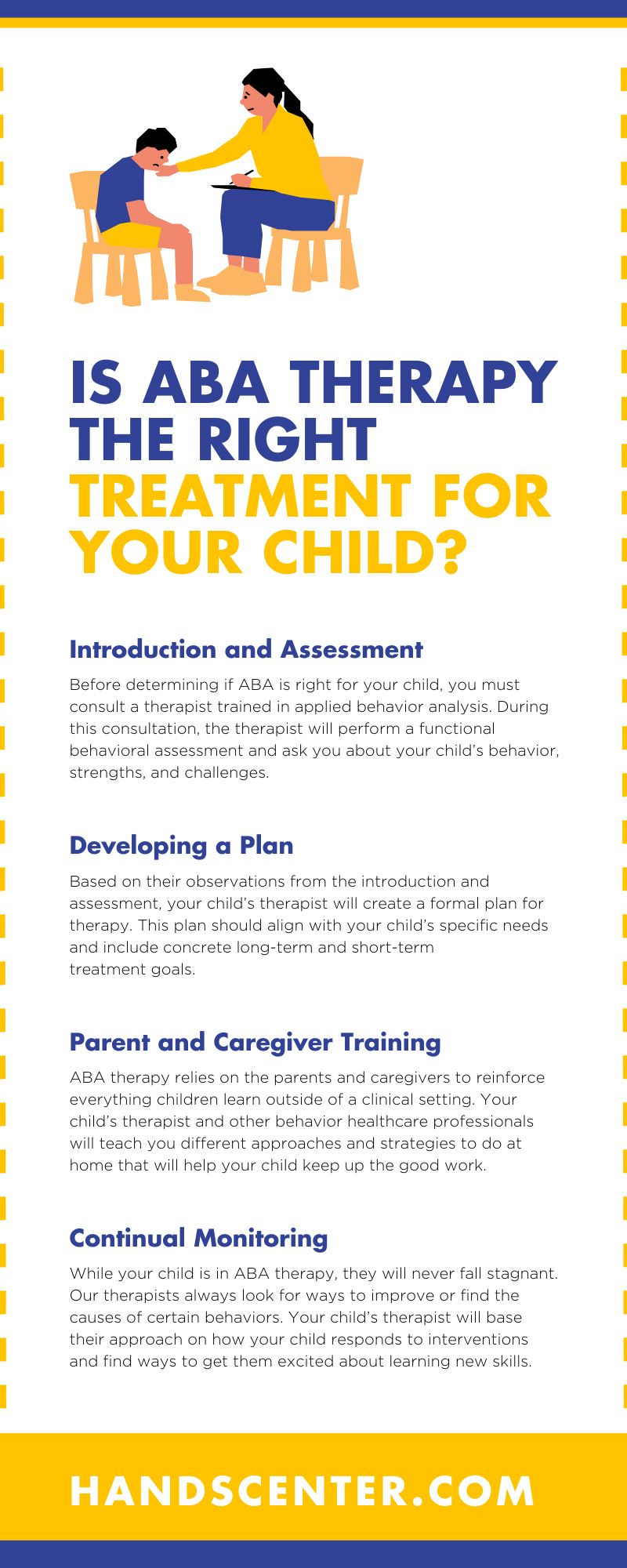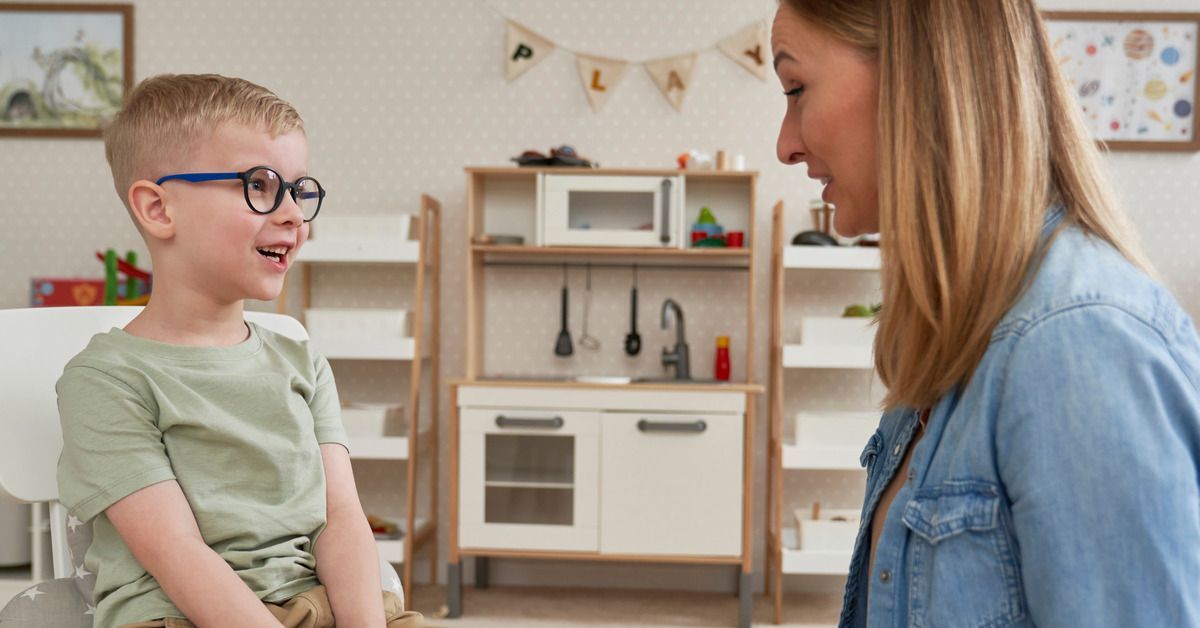Is ABA Therapy the Right Treatment for Your Child?
Applied Behavioral Analysis (ABA) is a therapy that can help improve your child’s social, communication, and learning skills through multiple reinforcement strategies. This treatment is widely known for helping children with ASD or other developmental conditions gain new life skills that can greatly benefit them in the future.
As a parent or caregiver, you want the best for your child. You may wonder if ABA therapy is the right treatment for your child, especially when there are therapies that may target more specific and niche needs. However, the most effective and efficient way to support your child with ASD is through ABA therapy.
This article will briefly summarize how our program works and what caregivers and guardians should expect.
How Does This Program Work?
Introduction and Assessment
Before determining if ABA is right for your child, you must consult a therapist trained in applied behavior analysis. During this consultation, the therapist will perform a functional behavioral assessment and ask you about your child’s behavior, strengths, and challenges.
After speaking with you, they will spend time interacting with your child to observe their communication styles and skill levels while also monitoring their behavior. If your child needs further observation, the therapist may ask to visit your home or school to see their behavior during their daily routine.
When the observation is complete, your child’s therapist will begin drafting a developmental plan to provide your child with enough knowledge and skill to have a fulfilling and independent life.
Developing a Plan
Based on their observations from the introduction and assessment, your child’s therapist will create a formal plan for therapy. This plan should align with your child’s specific needs and include concrete long-term and short-term treatment goals.
These goals typically include minimizing problematic behaviors, improving communication skills, and encouraging socialization. Your child’s therapist may also have plans for specific caregivers or family members to help enforce these desired behaviors. Involving everyone will help ensure that your child isn’t confused about the appropriate outcomes as they learn.
Different Types of Interventions
- Early Intensive Behavioral Intervention (EIBI): Professionals typically recommend this style for children under five. This individualized approach teaches fundamental social interaction, communication, and functional skills.
- Verbal Behavior Intervention: This approach can help children increase their communication skills and become more verbal.
- Early Start Denver Model (ESDM): These interventions are a fun way for children to use all learned skills through play-based activities.
- Pivotal Response Training (PRT): This training allows your child to take the lead and feel a sense of control with the available choices on their individualized plan.
- Discrete Trail Training (DTT): This approach uses positive reinforcement and aims to teach skills through task completion and rewards.
Parent and Caregiver Training
ABA therapy relies on the parents and caregivers to reinforce everything children learn outside of a clinical setting. Your child’s therapist and other behavior healthcare professionals will teach you different approaches and strategies to do at home that will help your child keep up the good work.
You will also learn safety tips, less effective reinforcement strategies, and methods to prevent tantrums and outbursts. Your child’s autism therapy center should be a safe space for you and your family to gain the tools you need to ensure your child receives the best care.
Continual Monitoring
While your child is in ABA therapy, they will never fall stagnant. Our therapists always look for ways to improve or find the causes of certain behaviors. Your child’s therapist will base their approach on how your child responds to interventions and find ways to get them excited about learning new skills.
As your child continues their treatment, their therapists will monitor their progress and analyze what’s benefiting your child and what they can tweak in their developmental plans. With this information, your child’s therapist will give you a report on what you should work on at home and what your child is doing perfectly.
What’s the Goal of ABA Therapy?
The ultimate goal is that your child lives a fulfilling life by mastering the developmental skills they worked hard to achieve throughout the years. However, those goals depend largely on your child’s individual needs.
Nevertheless, ABA often helps:
- Reduce the number of tantrums or outbursts
- Reduce or stop self-harming behaviors
- Improve academic achievement
- Kids show more interest in those around them
- Increase communication skills
Can It Be Done at Home?
ABA therapy doesn’t only have to take place at a facility. You can also practice some teachings at home. In fact, most autism therapy centers encourage parents and guardians to do ABA therapy at home. Some children do best with in-home ABA practices because they’re in a familiar setting around people they know.
However, it’s only best to attempt ABA at home with the help of a licensed therapist so that you can ensure that you’re adhering to best practices. With their expertise, it will be easier for your child to master developmental and life skills, such as getting dressed or putting items away on their own.
The Bottom Line
So, is ABA therapy the right treatment for your child? The decision is entirely up to your discretion. However, applied behavior analysis therapy has benefited many children with ASD. Our therapies help them learn developmental skills and can improve communication while reducing harm and negative behaviors, like aggressive outbursts or self-injury.
On that note, it’s important to find an accredited ABA provider and therapist that strive to make this journey easier for you and your family. Finding a therapist who tries to establish a positive relationship with your child is a must when searching for an autism therapy center.
Luckily, you don’t have to look much further. HANDS Center for Autism is dedicated to helping children with autism, their parents, and their caregivers live fulfilling lives. We are an
ABA therapy center that believes in delivering the highest standard of care and creating a positive community.
For more information, don’t hesitate to contact us for a consultation or to answer any additional questions you may have.








